Click here to visit Original posting
Soundbars are an effective way of boosting your TV’s built-in sound, as the built-in speakers even on the best TVs can’t match the quality of their picture.
The Sonos Beam (Gen 2) is one of the best soundbars on the market, delivering punchy, immersive performance across movies and music at a mid-range price.
The mid-range soundbar market is extremely competitive, with various brands offering alternatives to the Sonos Beam. One such brand is Sony.
I recently got to test the Sony Bravia Theater Bar 6, a 3.1.2 channel soundbar, side-by-side with the Sonos Beam. The Theater 6 comes with a subwoofer in-box, something that isn't the case for the Sonos Beam (though it does have effective bass for an all-in-one soundbar).
How would these two similarly priced soundbars fare against one another? I hooked them up to the Panasonic MZ1500, a brilliant OLED TV, and used some reference 4K Blu-rays to test that out.
A quick note first: the Sony Theater 6 is a better value in the UK. The Sonos Beam (Gen 2) is priced at $449 / £449 / AU$799, and the Sony Bravia Theater 6 is priced at $649 / £499 / (roughly AU$1,000 converted from US price), meaning you’re getting a closer price match in the UK.
The case for Sonos
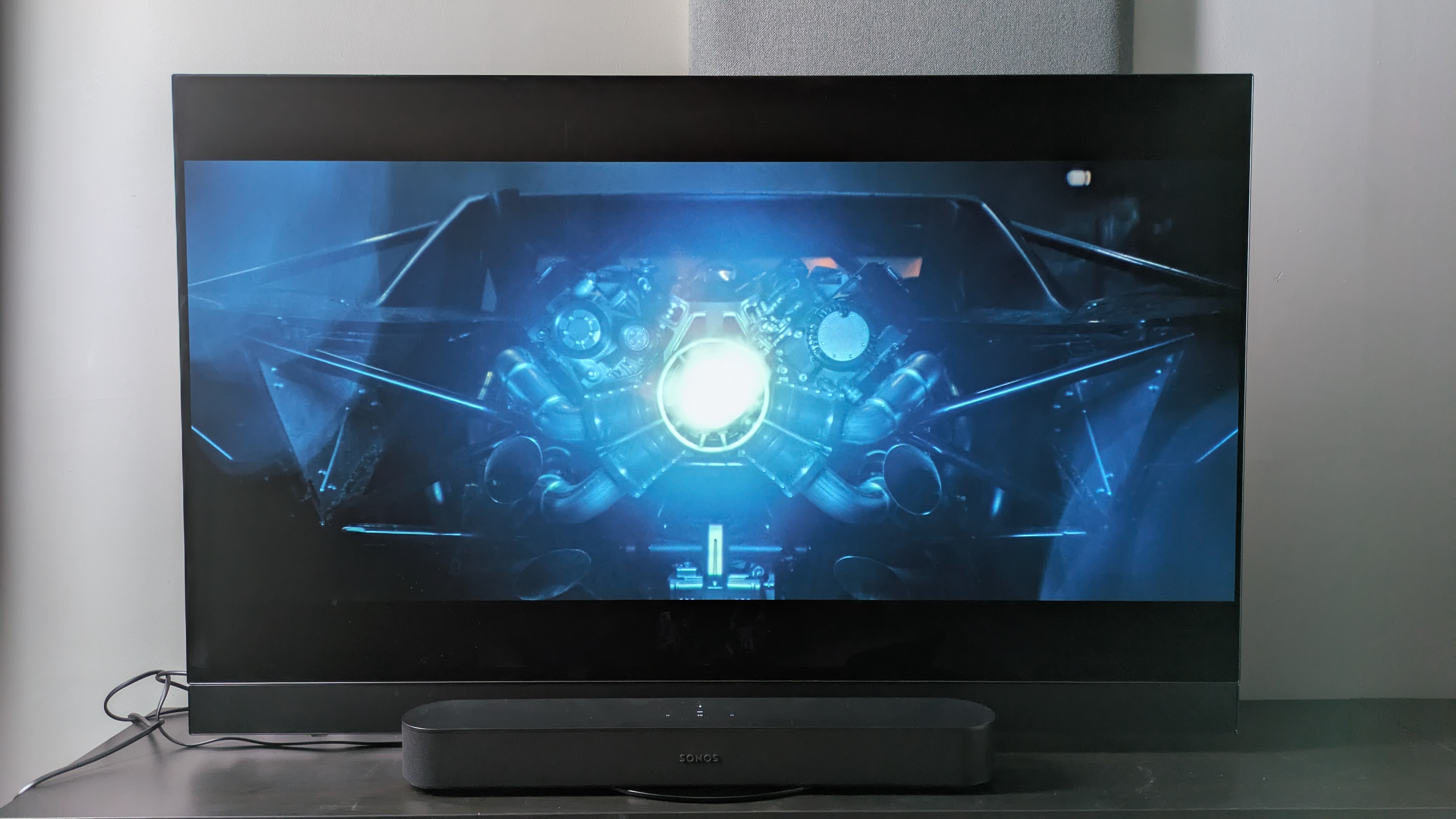
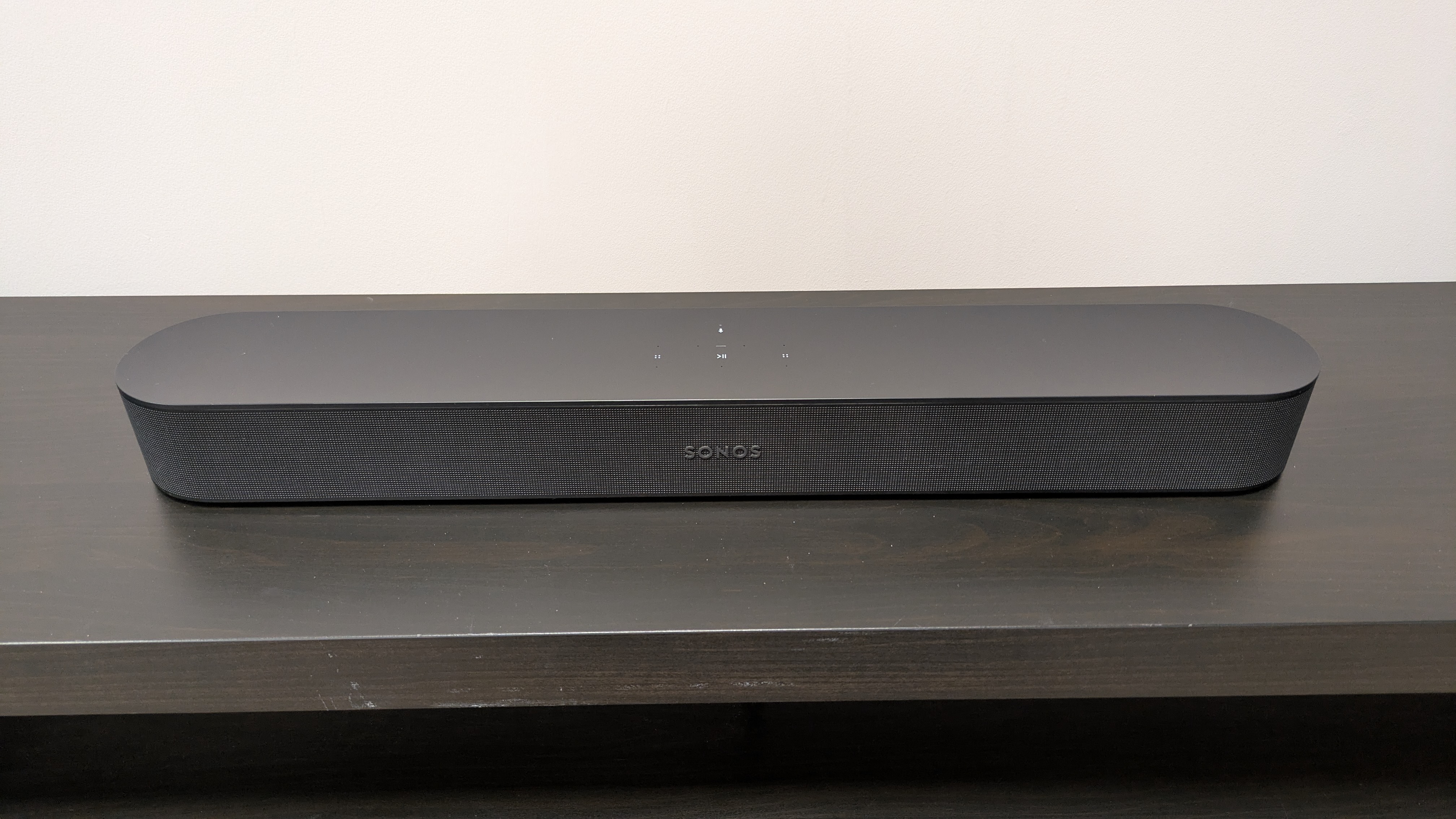
The Beam could be seen as having one big obstacle to overcome out-of-the-box: no included subwoofer. For that reason, you’d think it would have significantly weaker bass compared to the Bravia Theater 6, but that didn’t exactly turn out to be the case.
Watching a chase scene from The Batman, the Beam delivered punchy, weighty bass for a compact soundbar, perfectly capturing the rumble of the Batmobile’s roaring engine. The same was true watching Top Gun: Maverick, as the ignition of the Darkstar jet’s engine in the Mach 10 scene was impactful.
Speech clarity was another area where the Beam performed well despite its size. Watching various musical performances from A Complete Unknown (the Bob Dylan biopic starring Timothée Chalamet), vocals were delivered precisely without sacrificing other elements in the mix. In Wicked, Elphaba’s soaring, powerful vocals in the ‘Defying Gravity’ scene were delivered accurately through the Beam. I also found myself preferring the Beam over the Bar 6 when it came to the music sequences in A Complete Unknown.
The Beam’s sound connected to the action on screen as well, accurately placing effects such as screeching tyres and careering cars in The Batman, and the jets in Top Gun: Maverick.
The case for Sony
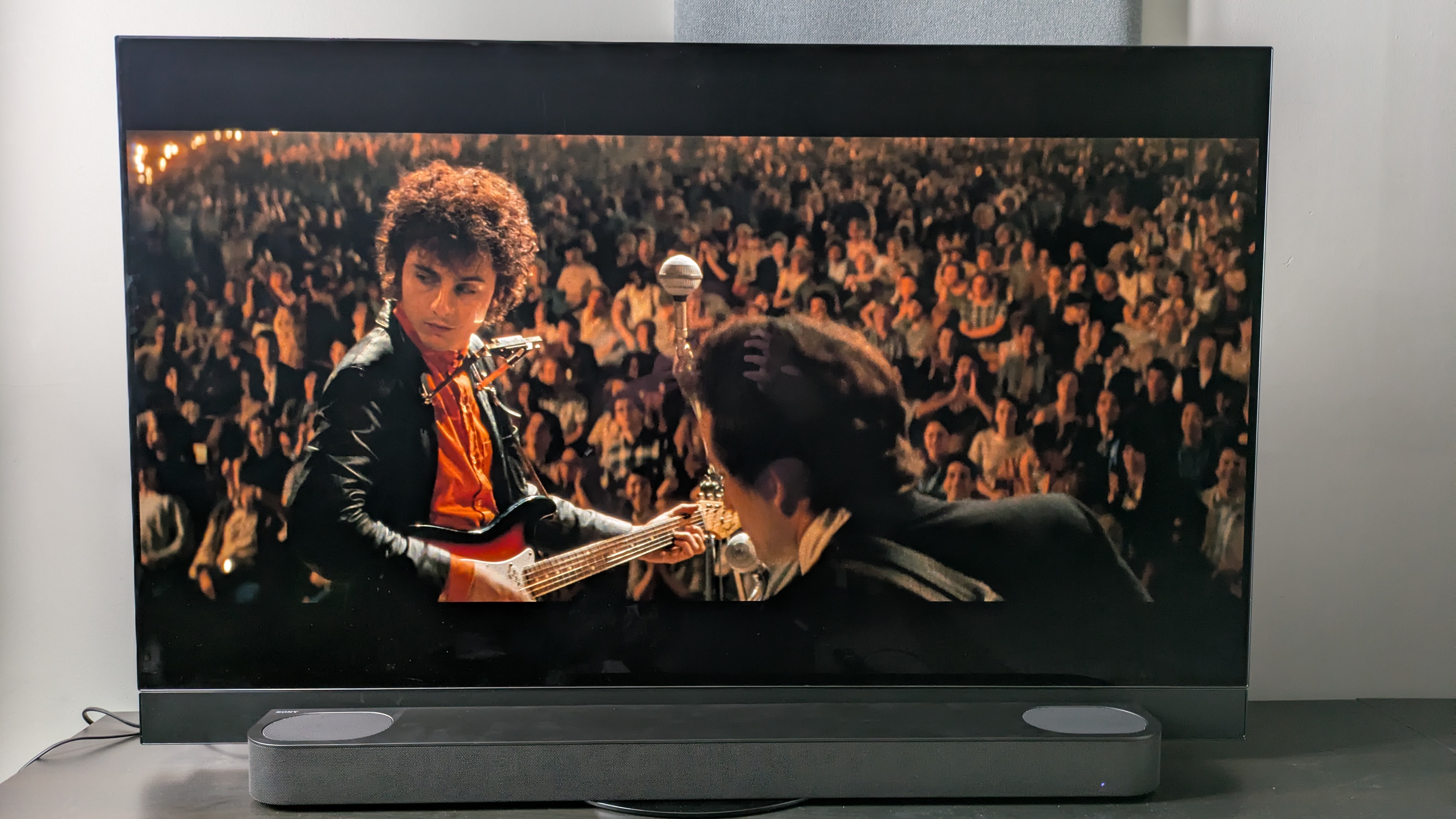
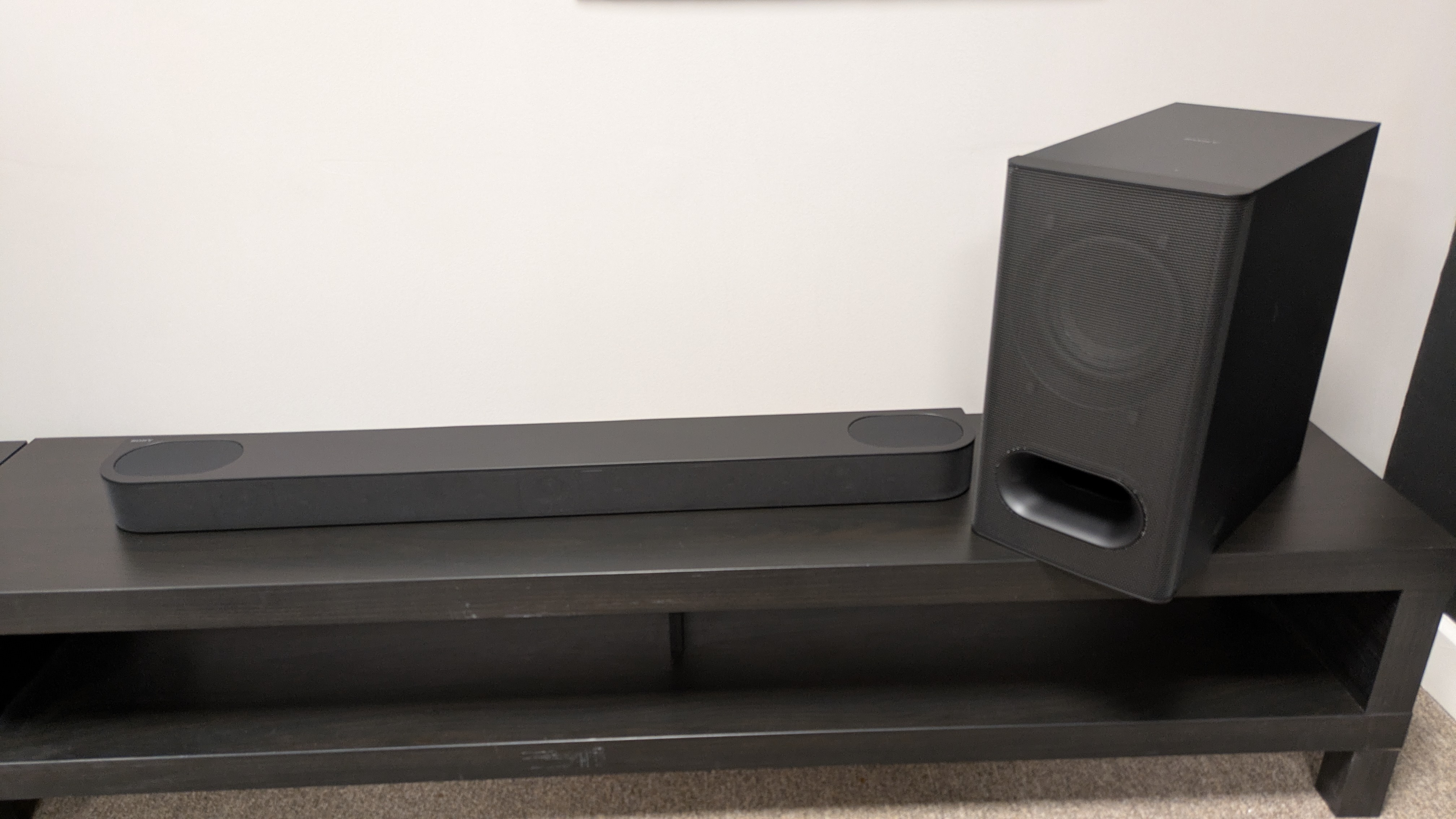
The Sony Bravia Theater Bar 6 external subwoofer gives it one big advantage over the Sonos Beam. Although the Beam is great for its size, it cannot compete with Bar 6 when it comes to bass.
Sony’s mammoth sub means the Bar 6’s bass is room-filling and delivers plenty of heft. Watching the same scene from The Batman, the rumble of the Batmobile’s engine was more powerful and engaging than what the Beam could muster – I even had to turn the bass level down. Bass was also tightly controlled and nuanced. For sheer sound power, the Bar 6 was the winner in this contest.
With two height speakers positioned on the soundbar, the Bar 6 does a better job of delivering height effects than the Beam. The sound of rain throughout The Batman was more prevalent, even during the Batmobile chase with its propulsive score and loud explosions. And in the Mach 10 scene from Top Gun: Maverick, where the Darkstar jet flies over Admiral Cain, the trajectory of the jet was more accurately mapped by the Bar 6 than by the Beam.
The Bar 6 soundbar is significantly wider than the Beam (37 inches / 950mm to the Beam’s 25 inches / 651mm), which gives it a wider soundstage. During the defying gravity scene in Wicked, the winds and direction of sound felt more immersive on the Bar 6 as Elphaba took flight on her broom, although the Beam also did a credible job here. And activating the Sound Field mode on the Bar 6 made the sound even more immersive.
During the musical performances in A Complete Unknown, the Bar 6 delivered a fuller, more spacious sound than the Beam. For instance, as Dylan and Joan Baez played at the Newport Folk Festival, the applauding crowd sounded clearer on the Bar 6, and the vocals and guitars had a more sprawling, expansive quality.
Beam vs Bar 6: the verdict
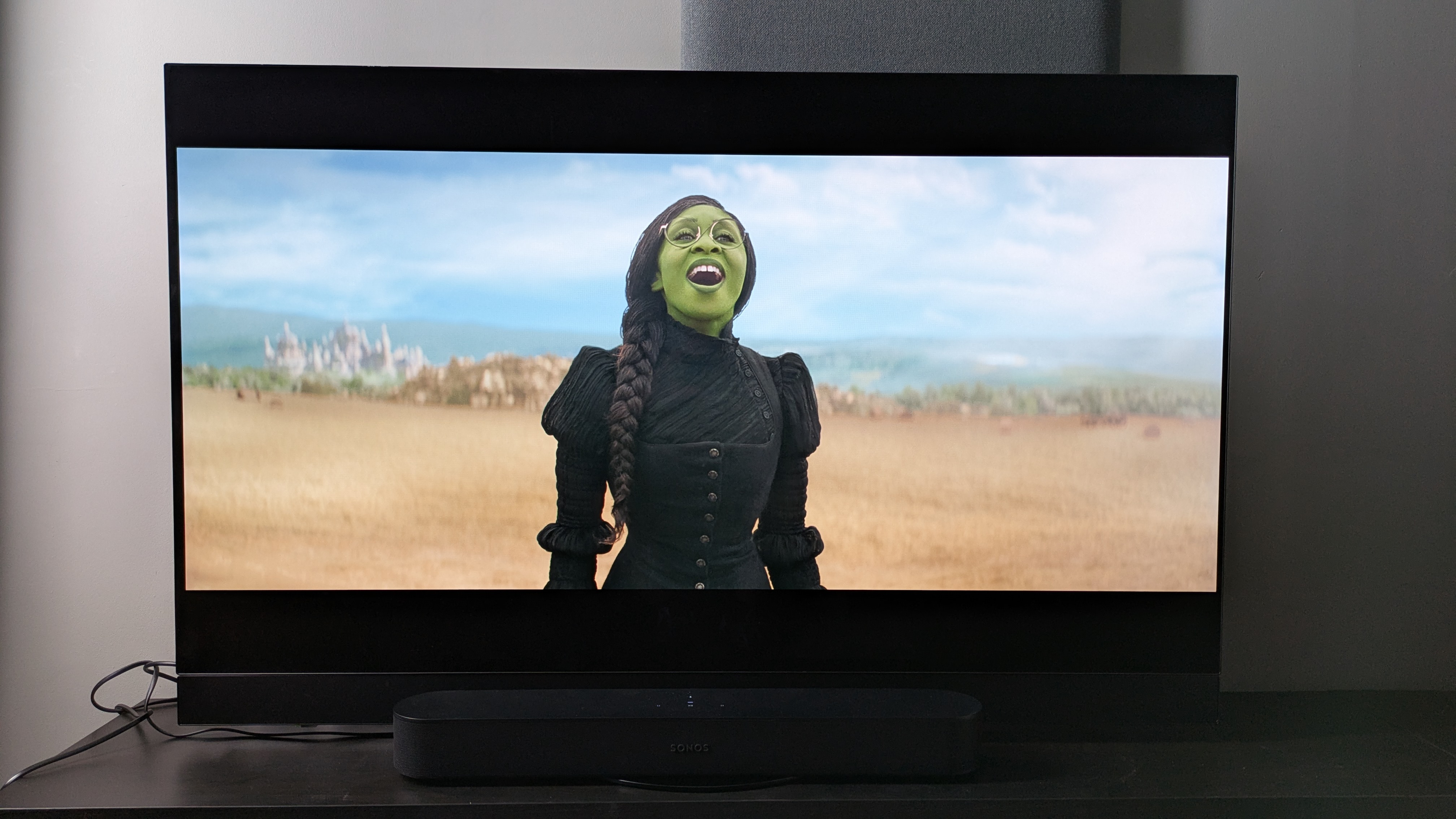
Both the Beam and the Bar 6 are great examples of how effectively mid-range soundbars can improve a TV’s sound, and both have their unique strengths. The Beam shines with music-related content and has an impressive soundstage and bass considering its size.
But the Bar 6 with its included subwoofer has the more powerful bass, a wider soundstage thanks to its wider size, and upfiring speakers that deliver more accurate height effects than the Beam.
Which soundbar is ultimately better will depend on your circumstances. If you have a smaller space, the Beam will be more than enough. But if you have a medium-sized room and are looking for more powerful, spacious sound, the Bar 6 is the way to go. If you’re in the US, it will be tough to ignore the $200 price gap between the two. The Beam arguably delivers better bang for your buck in that case, but in the UK, it’s a much closer contest.
Since I’m in the UK, I’d choose the Bar 6 over the Beam, but the latter is a fantastic example of what an all-in-one soundbar can do. In the end, you’re spoilt for choice with these two great soundbars.